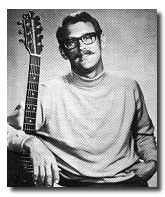 |
 |
1970. Frost Amphitheater, Stanford University. Five thousand people are gathered to hear a new phenomenon: Jesus music. Unlike a crowd such an event would draw 25 years later, most of these people are not Christians. Some are spiritually hungry; others, just curious. The pungent smell of pot wafts through the beaded crowd. Shirts come off in the warm afternoon sun and not all bare chests are male. Love Song rocks a soft melody heavenward and their shaggy heads fall back in worship. Then a Led Zeppelin style rock band from a Christian commune in Spokane screams their torrid savior-love through eyes that look like they just shot up on all three persons of the Holy Trinity backstage.
Wilson McKinley is their name and they will be gone and forgotten in only a few months, though their sound is professional and passionate. Then an intelligent commentary comes from the biting lyrics of Bob Marlowe and The Salt Company from Hollywood Presbyterian Church. Their lead singer, a tiny five foot brunette with a huge soprano voice belts out "Feelin' high on the love of my Lord Jesus/High on the love of my Lord/And no one's gonna tell me 'Chuck it baby'/'Cause He's my Rock and my Sword."Too soon they would label all this contemporary Christian music, package it, market it, and the world would run away from it as fast as a hit single sliding off the charts. It was a flash in time, when the world got to see Christians for what they are--people unconsciously in love with a savior who has done the unbelievable: forgiven their sins and filled them up with his unconditional love. This was love overflow splashing out on a crowd of surprised, cynical unbelievers--a window in time that can only be remembered here, not re-captured. But in the memories, perhaps we can find something to measure our faith by today. August 1997